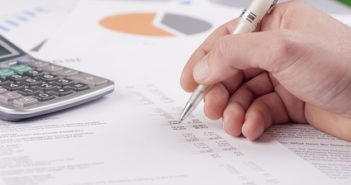Direct Market Access (DMA) gives traders direct access to the global stock exchanges that speed up your transactions and reduces your costs. With DMA, you place your order online and it immediately undergoes a direct execution in the market. This means that your broker is essentially facilitating access directly to the market liquidity providers.
Take note of where this is available, as not all brokers are offering DMA. That’s because this requires non-dealing desk execution, most CFD brokers tend to prefer to be the market and to take the other side of the trade. DMA is quite a new product for the retail investor. But it is one that is worth exploring, especially with a regulated broker like TRADE.com.
This multi-asset broker offers access to literally hundreds of thousands of global securities on hundreds of different exchanges through DMA. Assets cover a huge range of classes, which is great for portfolio diversification and tactical asset allocation. They, like other DMA brokers will give you access to a DMA platform, in their case using the sophisticated IBKR platform.
The Building Blocks of DMA
DMA is a term that refers to electronic trading and it is a facility that allows you to trade directly with the online order book of an exchange.
Traditionally, you would notify your broker online or over the phone to transmit your order. The broker would usually then offer you the best price they can from their liquidity providers, taking into account the broker spread and other fees. However with DMA you are plugged directly into the market, which means a faster process and it also means cost savings, as you are effectively cutting out the middleman.
How Does it Work?
DMA has largely become possible due to the onset of electronic trading, since the 1990’s. The electronic order book can be directly accessed and the system(s) will automatically match the buyer with the seller, at the best offer and the transaction is complete. The transaction doesn’t completely omit the broker, as it is the broker’s platform that is connecting you to sell-side.
What Kind of Traders use DMA?
Typically DMA traders bring high volumes, they are regular investors. If you are thinking in terms of making a trade once a month then you may find the DMA product is unsuitable due to the volume requirements in place. In this case it may be wiser to stick with an ECN broker and straight through execution style.
But you can always work these finer details out directly with your DMA broker. A decent broker like TRADE.com will usually have a variety of products and can guide you on those that would best suit your investor profile and objectives.
The Benefits of Direct Market Access
Traders have greater control over their own operations when using DMA. As the trader, you can submit your proposals via your broker’s own platform and then independently manage the transactions.
This means there is no need for a market maker or for the broker to spread the order across the liquidity providers to find the best price. With DMA, the broker doesn’t charge a specific commission, so costs to you are lower. There is also typically no spread, or one that is extremely competitive when you trade through DMA.
Taking out the middleman is rather like simplifying a process, there are less steps and therefore errors are less likely to be made. In a manner of speaking, it’s a more holistic approach, giving greater security to the trader.
Final Thoughts
Direct Market Access (DMA) has been around since the 1990’s evolution of the market Exchanges towards the electronic order book. DMA allows the trader direct access to process their order onto the electronic exchange.
For the trader, the process is quicker and provides more control over the transaction than when placing an order to buy or sell through a traditional broker and market maker. The costs, therefore, are cheaper, the risk of error is lower and the access and transaction is direct and quick.
If you are an experienced, high volume trader then, you may find that DMA is the best style of trading to fit your needs. Be sure to choose a suitable and trustworthy broker. We can recommend TRADE.com as one such broker.
What is DMA Direct Market Access?
